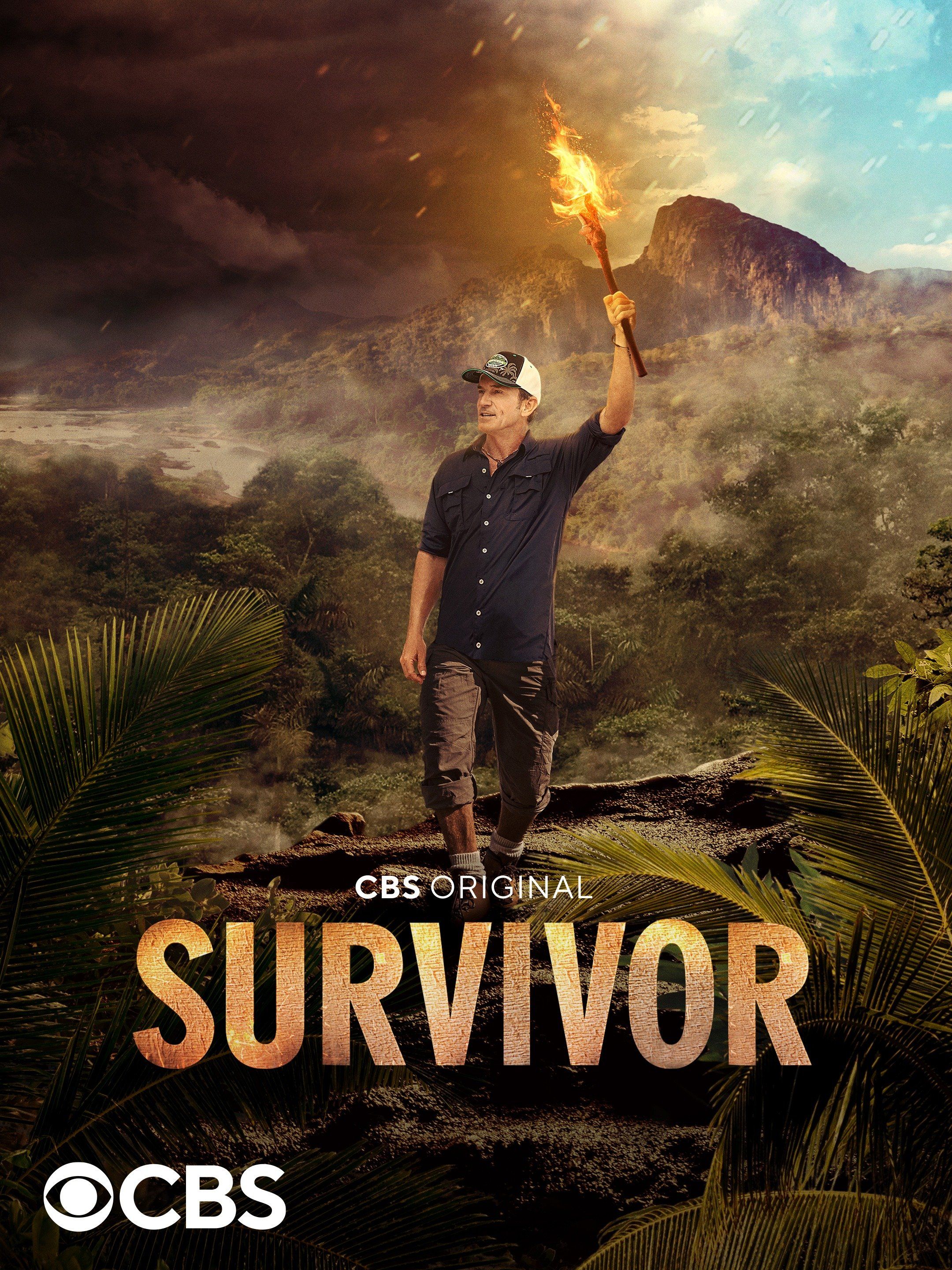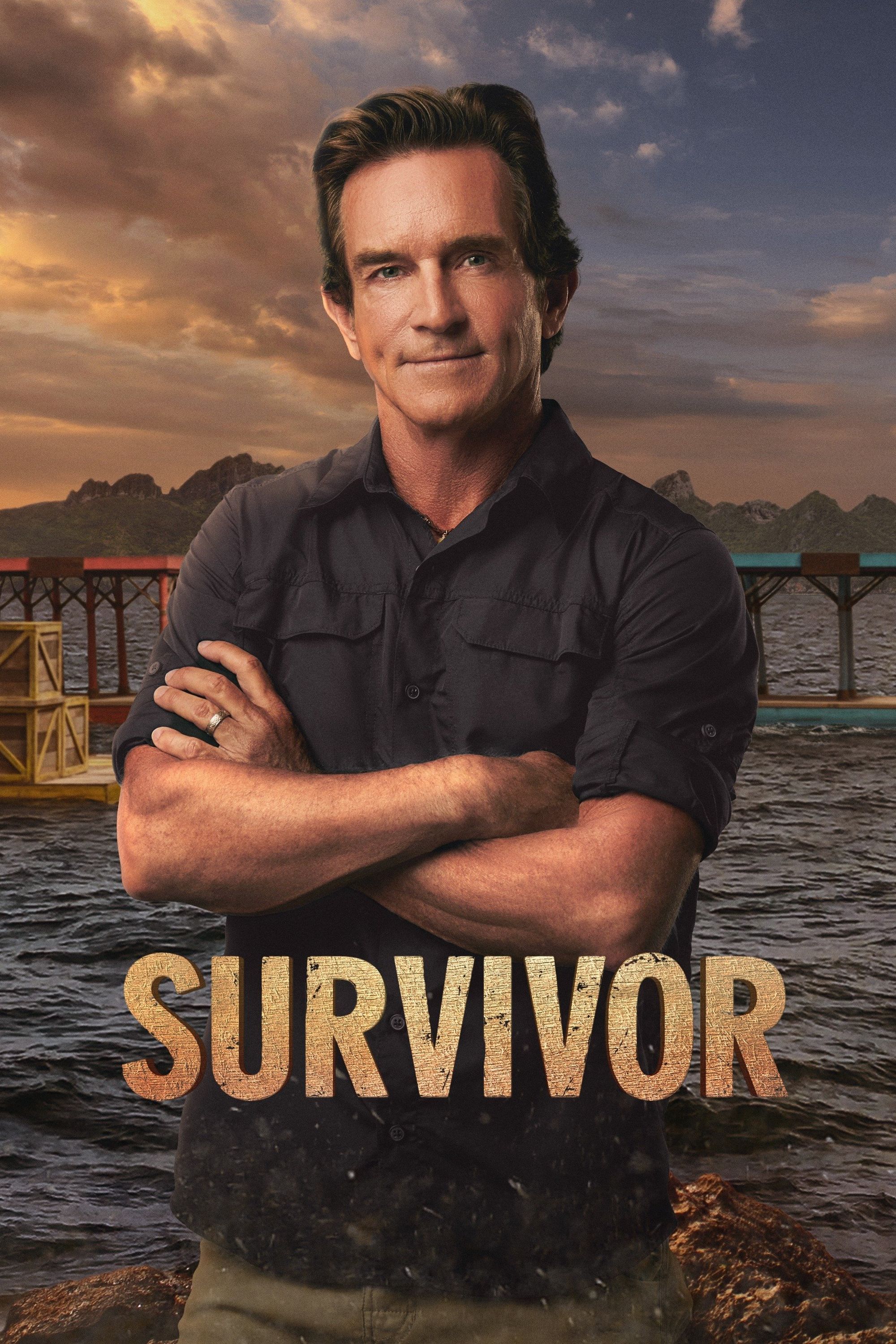Survivor Charlie And Maria - The Show's Changing Face
For many of us who have followed the show over the years, the way Survivor has changed is something we often talk about. It's really interesting, thinking about how the game has grown and shifted from its early days to what we see on our screens now. When you consider players like Charlie and Maria, or anyone who has stepped onto that island, their experiences are shaped by these very transformations.
It’s a bit like looking back at old photographs and seeing how things used to be. The show, in some respects, has gone through quite a few adjustments, from the technical side of things to the very feel of the competition. What was once perhaps a raw, rough around the edges experience has, well, just become something a little different, as time has gone on.
So, we're going to take a closer look at some of these shifts, pulling observations from what folks have been saying about the show. We’ll think about how these changes might have played out for anyone participating, including people like Charlie and Maria, and how they shape what we see as viewers. It’s a good way, I think, to get a handle on where the show stands today.
- Netflix The Sweetest Thing
- Gilded Horses
- Kanye West Car Accident 2002
- Rose Publishing
- Yvonne Mcguinness Art
Table of Contents
- The Show's Evolving Look and Feel
- Has Survivor Become Too Predictable for Players Like Charlie and Maria?
- Did the Jury Always Make Better Calls for Survivor Charlie and Maria's Era?
- Tracing Survivor's Path - From Pearl Islands Onward
- How Can Aspiring Players, Like Future Charlie and Maria, Get On The Show?
- What's Happening with Survivor's Audience and Viewership Trends?
- The Shift to Numbered Seasons - What Does It Mean?
- Keeping the Community Strong - Rules Around Survivor Content
The Show's Evolving Look and Feel
Thinking about how Survivor has changed over the years, one thing that comes to mind is how the picture quality has really come along. When high-definition cameras were just starting to make their way into television production, it really did make a noticeable difference in how the show looked on screen. You could see more detail, the colors were clearer, and everything just felt a little more polished. This technical improvement, in a way, marked a shift in how the show was put together.
However, some folks have mentioned that while these production changes might have made things easier or perhaps cheaper to put on, they might have also taken away a little bit of the show's spirit. It's almost as if making everything so smooth and controlled has, well, removed some of that raw, unpredictable feeling that made the early seasons so special. That rawness, you know, the unexpected moments, could be what made it feel so genuine for viewers and for players like Charlie and Maria.
There's a sense that the show, at this point, feels less like a grand, sweeping story, and more like something a bit more contained. The idea that stabilizing all those different elements, while good for the budget, might have cost the show some of its unique appeal is something many long-time watchers have pondered. It’s a fine line, really, between making a show efficient to produce and keeping its original spark alive. You could say, it’s a tricky balance to strike, especially for a program that relies so much on human drama and real-life struggles.
- Aleia Hall Lopez
- Loose Fit Maxi Dress
- Wisconsin Dairy Queen Sign
- Toni Braxton Concerts
- Medal Of Freedom Maya
Has Survivor Become Too Predictable for Players Like Charlie and Maria?
A common thought among those who follow Survivor closely is that the game has, in some ways, become a bit too easy to guess. There are times when it feels like you can see the outcome coming from a mile away, which, for a show built on surprises, can be a little disappointing. We've seen instances where certain players, like JT and Stephen, seemed to just run over the other tribe, which, while impressive, can also make the game feel less like a true competition of wits and more like a foregone conclusion. This sort of predictability might, in fact, change how someone like Charlie or Maria would approach their own game, knowing the patterns that tend to emerge.
This feeling of things being too predictable often goes hand in hand with the observation that some really good players seem to get voted out much too soon. It’s a shame when someone with a lot of potential, someone who could really make the game exciting, leaves the island before they’ve had a chance to show what they can truly do. This trend can make the overall story of a season feel less satisfying, perhaps even a bit frustrating for viewers who want to see the best players go far.
When the game becomes too patterned, it can take away from the unexpected twists and turns that used to make each episode so compelling. For contestants, whether they are new to the game or seasoned strategists, playing in a game that feels somewhat predictable might mean they have to adjust their approach significantly. It means, you know, trying to break free from the typical ways things are done, which is a big ask when you are under so much pressure. This is something that could really impact how players like Charlie and Maria would have to adapt their plans.
Did the Jury Always Make Better Calls for Survivor Charlie and Maria's Era?
For a good while, many people who watched Survivor thought that the group of former players who made up the jury often made smarter choices about who should win than the people still in the game made for themselves. It's an interesting idea, isn't it? The jury, being on the outside looking in, could perhaps see the bigger picture, the long game, and the true impact of each player's moves in a way that those still fighting for survival couldn't. This perspective, in a way, gave them a unique vantage point.
There was a belief that the jury members, having been through the experience themselves, could truly appreciate the strategy and social play of the finalists. They might have been able to look past personal feelings or immediate grudges to reward the player who truly played the best game. This often led to what many considered to be fair and well-thought-out decisions, which, honestly, felt good to see as a viewer. It made you feel like the game’s integrity was upheld, even if your personal favorite didn't win.
However, as the game has evolved, some have started to question if this is still the case. The idea that the jury consistently makes the best choices, better than the players themselves, is perhaps something that has been debated more lately. The dynamics of the game change, and so too, it's almost, do the criteria for what makes a winning game. So, whether this holds true for players like Charlie and Maria's time on the show, or any era really, is a discussion that continues among fans.
Tracing Survivor's Path - From Pearl Islands Onward
If you're someone who really enjoyed the season known as "Pearl Islands," and you're curious about how Survivor changed and grew in its earlier days, there's a particular path of watching the show that comes highly suggested. This approach involves going back and seeing those foundational seasons, which, you know, really helped shape what the show would become. It’s a good way to get a sense of the show's roots and how it started to build its identity, something that would affect every player, including people like Charlie and Maria, who came after.
Those early stages of Survivor were, in many respects, a period of experimentation and discovery. The producers were figuring things out, the players were inventing strategies as they went along, and the audience was learning what to expect from this brand-new kind of television. Seeing how the game developed, how certain elements were introduced or refined, gives you a deeper appreciation for the show's long run. It's a bit like watching a young plant grow into a big tree, seeing all the different branches it puts out.
Understanding this growth, from the very first seasons through to those like Pearl Islands, helps put the current state of the show into perspective. You can see the origins of certain gameplay styles, the beginnings of challenge types, and the evolution of the social dynamics. This historical view, you know, is pretty valuable for anyone who wants to fully appreciate the journey of Survivor, and how it has influenced every single person who has played, from the very first castaways to people like Charlie and Maria.
How Can Aspiring Players, Like Future Charlie and Maria, Get On The Show?
With Jeff and Jesse, who are pretty well-known figures associated with Survivor, talking quite a bit lately about how people can send in their audition tapes, it’s sparked a lot of interest. For anyone out there who is thinking about putting together a video to try and get on the show, I've got some brief notes that might be helpful. These are just some quick thoughts, really, on what goes into making a good impression when you're trying to get noticed by the casting team. It’s a big step, you know, trying to get on a show like this.
Making an audition video is, in a way, your first chance to show who you are and why you would be a good fit for the show. It’s not just about what you say, but also how you present yourself, your energy, and your genuine interest in the game. You want to make sure your personality shines through, that you come across as someone who would be interesting to watch on screen. This is a very important part of the process, as it’s your chance to stand out from many, many other hopefuls.
These notes are meant to give a little guidance, to help aspiring players, perhaps future individuals like Charlie and Maria, put their best foot forward. It’s about being authentic, showing your passion for the game, and giving the casting directors a real sense of what you'd bring to the island. So, if you're thinking about sending in your own video, keep these points in mind, and good luck with it all. It’s a big dream for many, and getting that tape just right is a key first step.
What's Happening with Survivor's Audience and Viewership Trends?
When we look at how television viewing has changed, it’s clear that things are different now compared to years past. There's been a general trend of fewer people watching traditional broadcast television, and Survivor, like many other shows, has seen its viewership numbers shift. It's something that people have been discussing quite a bit, how audiences are consuming content in new ways, and how that affects established programs. This broader shift impacts everything, including how a show like Survivor is produced and promoted, and it’s a factor for any player, whether it’s Charlie and Maria or someone else, as the show needs an audience to keep going.
One interesting point that's come up is the idea that Survivor, along with another popular show, Big Brother, are likely the main reasons why people sign up for CBS All Access. This suggests that these reality competition programs are pretty important for streaming services, acting as a big draw for subscribers. So, even if the traditional viewership numbers on network TV are a little lower, these shows still hold a lot of value for their parent companies, bringing people to their online platforms.
This situation, where viewership trends are generally showing a bit of a decline across the board, means that shows have to find new ways to connect with their audience. It means, you know, being available on different platforms and perhaps trying new things to keep people interested. The fact that Survivor and Big Brother are such strong forces for a streaming service indicates their continued popularity, even as the ways we watch television continue to change. It’s a sign of the times, really, how entertainment is consumed.
The Shift to Numbered Seasons - What Does It Mean?
Honestly, when I first heard the news that Survivor was going to stop using season titles and that seasons 41 and onward would just be numbered, I had a little worry. My first thought was that they might be considering stopping the show altogether. It felt like a pretty big change, moving away from those unique names that often gave a hint about the season's location or theme. This kind of branding shift, you know, can make you wonder about the long-term plans for a show, and how it might affect the perception of future players, like if a "Charlie and Maria" season would simply be "Survivor 47" without a special name.
The decision to go with simple numbering, rather than creative titles, does change the feel of each season a bit. Those titles, like "Pearl Islands" or "Heroes vs. Villains," gave each season a distinct identity, a way to easily remember and talk about them. Without them, the seasons become, well, just a sequence of numbers. This might seem like a small thing, but for fans who have followed the show for so long, it can feel like a part of its character has been altered. It's a different way of marking time in the show's history.
While the change to numbered seasons might be a practical decision for production, perhaps simplifying things behind the scenes, it does raise questions about the show's future direction. It makes you think about how the show sees itself, and how it wants to be perceived by its audience. It’s a shift that, for many, marked a new era for Survivor, one that felt a little less personal, a little more standardized. So, it's a topic that often comes up when people discuss the show's evolution.
Keeping the Community Strong - Rules Around Survivor Content
For any show with a dedicated fan base, keeping the community a good place for discussion is really important. When it comes to Survivor, there are some clear guidelines about what kind of content is allowed, especially concerning how people get to watch the show. We often see that links to illegal streams, torrents, or other pirated copies of Survivor are removed from fan spaces. This is a pretty standard practice, as it helps to support the show and its creators, and ensures that everyone is playing by the rules, so to speak.
Along with that, posts that are, you know, thinly veiled requests for illegal copies of the show also tend to be taken down. It’s all about maintaining a respectful and lawful environment for fans to talk about their favorite show. This also extends to discussions about things like VPNs and their usage, which, while not illegal in themselves, can sometimes be associated with accessing content in ways that aren't officially supported. The aim is to keep the conversation focused on the show itself, in a proper manner.
These rules are put in place to help make sure that the community remains a positive and legitimate space for everyone who loves Survivor. It helps to protect the show's integrity and ensures that fans can enjoy it in the ways it's meant to be seen. So, for anyone discussing seasons involving players like Charlie and Maria, or any season really, it’s good to be aware of these community standards. They help keep the fan base a welcoming and fair place for all its members.

Survivor (2000) | Collider

Survivor Series 2025 Dates Uk - Morgan R Brown

10 TV Shows That Will Probably Never Be Canceled